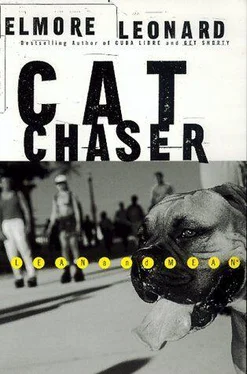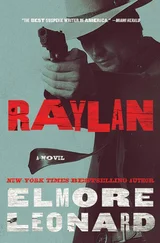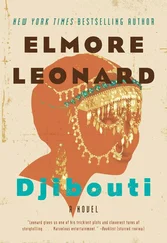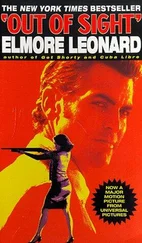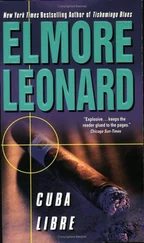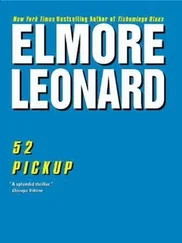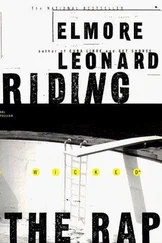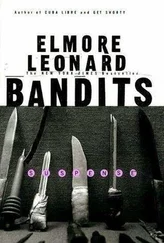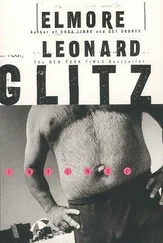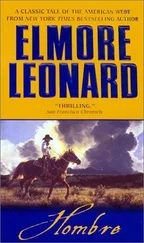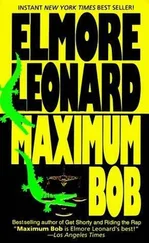Mary walked back to the taxi. Bienvenido got out. He opened the door for her and she said, “I’ll wait. Thanks.” She watched Moran, on the other side of the intersection, then said to Bienvenido, “Do you remember General Andres de Boya?”
Bienvenido said, “Oh my. Oh my, yes. General de Boya, ouuuh, he was a devil, that man.”
“Why do you say that?”
“Because he kill people with his Cascos Blancos . Everyone the enemies of them. They kill more people than the malaria fever.”
Mary said, “Oh…”
“That fella was a devil. Yes, we very glad he’s gone from here.”
Mary got in the car. She sat in back, staring through the windshield at Moran across the street.
Once Luci picked up their radio frequency she kept cutting in on them. They didn’t know what she was using and they didn’t talk to her at first. They’d switch frequencies and there she’d be like Tokyo Rose, giving them the business. “What you doing here, Marines? You come to kill us? Why? We haven’t done nothing to you. You afraid of Communists? We not Communists, but you turning us into Communists you stay here.” Political at first, till she got to know the Cat Chasers that patrolled along Independencia as far as La Carreras in a jeep with a 50 mounted on it. He spoke to her a couple times, asking her name and if she’d have a beer with him. She said sure, come over to Conde Street, she’d meet him. Conde, where rebel headquarters was located.
They were almost ambushed and got in a firefight at the corner of Carreras and Padre Billini; the Cat Chasers gave chase, in and out of the buildings, and that was when he finally saw her the first time, running across a rooftop with her carbine.
He saw her from a window across the street, the window a story higher than the roof she was on. He put his M-14 on her and began to track and saw her look back, laughing, yelling at somebody, waving then, Come on! Then she was looking this way, surprised, and he saw her face clearly. There was a burst from a submachine gun. He saw a guy on the same roof now, a guy wearing a baseball cap, a pouch of magazines slung over his shoulder, the guy aiming at him. Moran hung in and squeezed off and the guy spun, grabbing at his side above the left hip, and went down behind the cornice of the building. The girl disappeared. They went up to the roof but all they found was some blood and a few 9-mm casings. The next day, over the radio, the girl’s voice said, “You so slow, you Cat Chasers. You tired from chasing putas .” She didn’t mention the guy who got hit.
The second time was after the 106 fired from the silos across the river almost put him under, tore his leg up with shrapnel and he had an awful time getting down from the third floor with the stairway blown to hell. He should have stayed up there. He climbed through the rubble, slipped out the back thinking he was pretty cool and walked right into them. A gang of guys in sportshirts carrying old M-1s and Mausers. He’d always remember how they grinned at him. The fuckers, they weren’t even soldiers.
They blindfolded and quick-marched him to a house he’d never have found again even if he could have seen where they were going; gave him a bucket of water and a dirty towel to do something about his bleeding and locked him in a room. Every once in a while the door would open and some more of them would look in to see the prize, laughing and making, no doubt, insulting remarks in Spanish. He told them to get fucked but they just laughed some more. When the girl came and stood in the doorway he knew who it was right away. Maybe it was the carbine she had slung over her shoulder, though he told himself later it was her eyes, the way she looked at him like they had met before.
She was skinny, without any breasts to speak of, but had beautiful eyes and chestnut brown hair.
He said, “Well, Luci, how you doing?” Taking a chance and hitting it on the head. She smiled. She looked like she’d be a lot of fun just to be with. She wore a T-shirt and jeans that were patched and faded. She left the carbine outside, came in and closed the door.
She said, “You’re the Cat Chaser.” Her whole face smiling.
“I’m one of ’em.”
“You catching much lately?”
“Well, I didn’t do too good today, I’ll tell you.”
She liked that; she smiled and went out and came back with a bottle of El Presidente and a dressing. She fooled around with his leg while he drank the beer, the leg not hurting yet, though it looked a mess. He asked about the guy he’d shot and she mentioned the guy’s name, which he forgot, and said the guy was not hurt bad but had quit the war. She asked him where he lived; he said Detroit and she told him she had stayed in Miami, Florida for two months, visiting. She told him she loved Miami, Florida and wanted to go back there sometime. She asked him if he liked the Beatles or did he prefer the Rolling Stones? Everyone, she said, was in love with the Beatles. They discussed the Supremes, Freddie and the Dreamers, Sam the Sham & the Pharaohs, the Righteous Brothers, Herman’s Hermits… She did not care much for the Beach Boys or Roger Miller. He said he didn’t either. Her favorite of all was Petula Clark. She sang a little of “Downtown” in English, snapping her fingers; she knew more of the words than he did.
When they took him out and put him in the panel truck she was there. He told her to take care of herself. She gave him a look that was sad and sort of longing and told him to take care of himself, too. She said, “I won’t shoot at you no more.” Some war.
They told him see, we’re not bad guys; we’re good to you. It’s your government, your President Johnson we don’t like. They handed him over to a Marine patrol on the west end of Independence Park. The Marines looked at him like he was some kind of weird freak and drove him to the field hospital at Haina.
It was the end of Moran’s war.
Mary was patient because she enjoyed watching him and could feel the enthusiasm he tried to keep inside him. Like a young boy. Excited but self-conscious at the same time. It gave her a feeling about him that was tender and made her want to touch his face. But maybe she simply liked to touch him; she would watch him asleep, breathing softly, and the same feeling would come over her.
When he returned to the taxi and got in next to her, she said, “That’s where you were wounded?”
He nodded slowly, several times, then cocked his head, looking out the windshield. “It seems bigger. You go back to a place where you lived or spent some time and it always seems smaller. But Santo Domingo seems bigger.”
“It probably is,” Mary said. “It’s grown. A million people live here.”
“I don’t mean that way,” Moran said. “I guess I mean it isn’t as easy to understand as I thought it would be. Things aren’t black or white, are they?” He shrugged and said, “Maybe it’s me. I see it differently now.”
With feeling, Mary thought. How many people did she know who spoke or looked at anything with genuine feeling? Without being cynical, on stage, trying to entertain. Without puffing up or putting down. She wanted to know what he felt and, if possible, share the feeling.
“What happened then?”
He hesitated for a long moment. “I was taken to a field hospital. Five days later I was evacuated. Home.”
* * *
They returned to the hotel along the broad expanse of Avenida Washington with its tall palms, its view of the Caribbean on one side and the facade Santo Domingo presented to the world on the other: sun beating on walled colonial buildings and straw markets, the old giving way to solitary glass structures rising in the background. Mary said, “This is one section that’s never blacked out.” She told of a Dominican couple she’d met at the country club who paid twelve hundred dollars a month for electricity. Moran said it would be something to tell his neighbors in Pompano; they were into electric bills and loved to compare them.
Читать дальше
